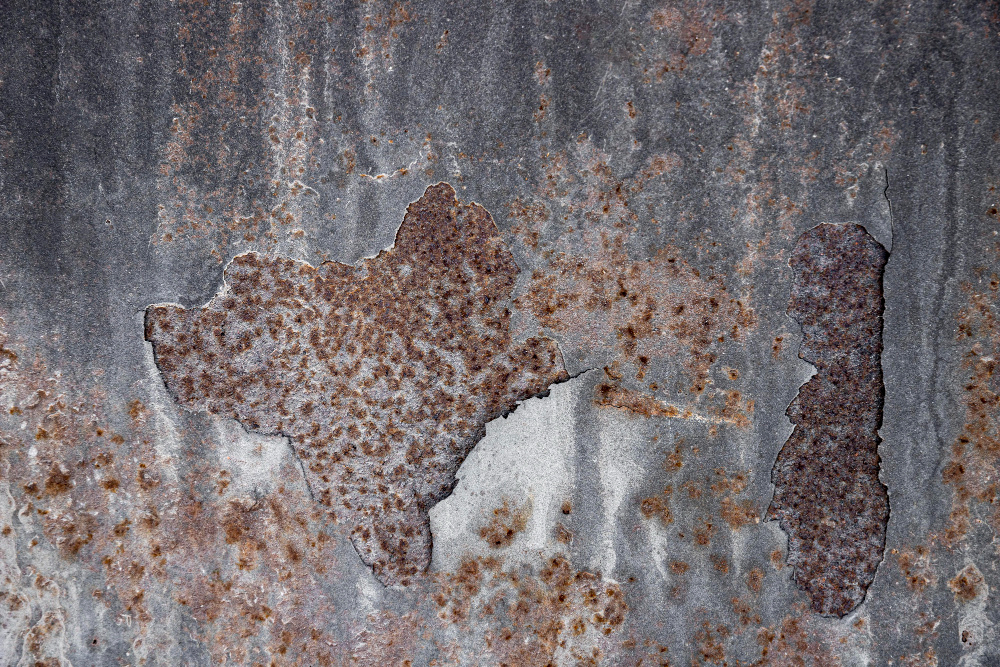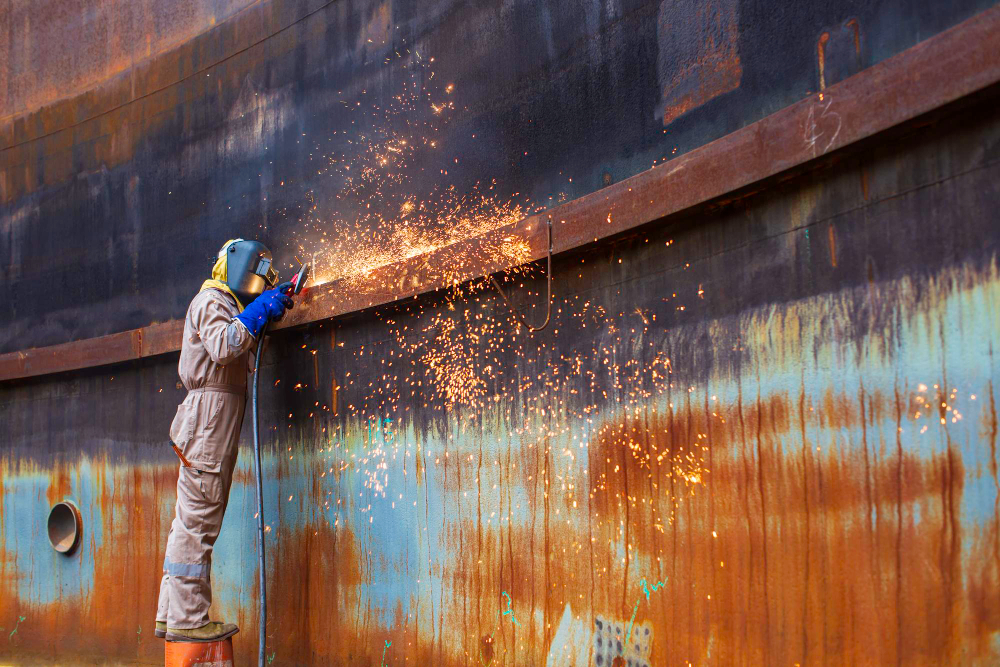Preventing Uniform Corrosion: Insights from CORCON Institute of Corrosion (CIC)
corrosion is a widespread and often underestimated form of corrosion that occurs evenly across the surface of a material. While it may seem harmless initially, if left untreated, it can lead to significant material degradation. CORCON Institute of Corrosion (CIC), established in 2014 to promote corrosion awareness and control, offers the following tips to help mitigate uniform corrosion in various industries.
Choose Corrosion-Resistant Materials
The best way to prevent uniform corrosion is to select materials that are inherently resistant to corrosion. Stainless steels, titanium, and alloys with high chromium content are known to resist uniform corrosion effectively. When selecting materials for construction or manufacturing, always assess the environmental conditions they will be exposed to. For instance, materials used in marine environments should be highly resistant to saltwater-induced corrosion. CORCON Institute of Corrosion (CIC) advocates for informed material choices to mitigate uniform corrosion and extend the lifespan of assets.
Apply Protective Coatings
One of the most effective methods for reducing uniform corrosion is the application of protective coatings. Coatings such as paints, varnishes, or powder coatings create a barrier between the metal surface and the environment, preventing direct contact with corrosive agents. By applying an appropriate coating, you can slow down or entirely prevent the uniform corrosion process. It is crucial to inspect these coatings regularly for damage and reapply them when necessary, as continuous protection is key to reducing the risk of uniform corrosion.
Control Environmental Factors
The rate of uniform corrosion is significantly influenced by environmental conditions such as humidity, temperature, and exposure to chemicals. In industries like chemical processing or offshore oil platforms, controlling the environment can substantially reduce corrosion. Installing dehumidifiers, controlling temperatures, and reducing exposure to aggressive chemicals can limit the factors that accelerate uniform corrosion. CORCON Institute of Corrosion (CIC) emphasises the importance of monitoring and controlling these variables to prevent the onset of uniform corrosion in critical equipment.
Regular Inspection and Maintenance
Routine inspection and maintenance are crucial in detecting early signs of uniform corrosion. Corrosion often begins slowly and can go unnoticed until it causes serious damage. Regular visual inspections, non-destructive testing (NDT), and corrosion monitoring tools can help identify areas at risk for uniform corrosion. Early detection enables timely repairs, which can save substantial costs and avoid catastrophic failure. CIC promotes regular maintenance schedules and inspections to ensure the longevity and safety of materials exposed to potential corrosion risks.
Use Corrosion Inhibitors
In environments where corrosion is difficult to control through material selection or coatings alone, the use of corrosion inhibitors can be an effective solution. These chemical compounds slow down the corrosion process and are particularly useful in pipelines, tanks, and other equipment exposed to corrosive fluids. By adding inhibitors to the system, industries can prevent the uniform corrosion of metals and reduce the need for frequent replacements. CIC offers educational programmes on the effective use of corrosion inhibitors to its members, ensuring better understanding and implementation.
Ensure Proper Design and Fabrication
Proper design and fabrication are essential in minimizing corrosion. When designing equipment or structures, ensure that joints, seams, and welds are well-executed, as these are common areas where corrosion can initiate. Additionally, designing for proper drainage and ventilation can prevent moisture accumulation, which exacerbates uniform corrosion. A well-designed system reduces the exposure to corrosive elements, prolonging the life of the materials. At CORCON Institute of Corrosion (CIC), we provide expertise and training on designing for corrosion prevention.
Implement Cathodic Protection Systems
In cases where uniform corrosion is inevitable due to the environment or the nature of the material, cathodic protection can offer a solution. This technique involves applying a small electric charge to a metal surface to counteract the electrochemical reactions responsible for corrosion. It is particularly useful for underground or submerged metals, such as pipelines and storage tanks, which are prone to uniform corrosion. CIC offers training on cathodic protection methods and technologies to help industries implement this effective solution.
Monitor pH Levels and Chemical Exposure
Uniform corrosion is highly influenced by the chemical composition of the surrounding environment, particularly pH levels and the presence of aggressive chemicals. In acidic or alkaline environments, metals are more susceptible to corrosion. By regularly monitoring the pH levels of the surrounding medium and controlling the concentration of reactive chemicals, industries can effectively slow down the uniform corrosion process. This is particularly important in sectors like mining, chemical processing, and water treatment, where fluctuating chemical exposure can accelerate corrosion. CORCON Institute of Corrosion (CIC) offers training and resources to help industries implement robust chemical monitoring and control strategies to safeguard against uniform corrosion.
Implement Corrosion-Resistant Design Features
When designing systems and structures exposed to potential uniform corrosion, incorporating corrosion-resistant design features can make a significant difference. For example, ensuring that surfaces are free from sharp edges and crevices where water or chemicals can accumulate helps prevent localised corrosion. Additionally, designing drainage systems that allow for the proper flow of water and prevent stagnation can reduce the risk of uniform corrosion. CORCON Institute of Corrosion (CIC) provides expert consultations on incorporating such design features into new and existing structures, ensuring a more effective approach to corrosion control.
Frequently Asked Questions
What is uniform corrosion?
Uniform corrosion is a type of corrosion that occurs evenly across the surface of a material, leading to gradual and widespread material degradation.
What are the primary methods to prevent uniform corrosion?
Key methods include selecting corrosion-resistant materials, applying protective coatings, controlling environmental factors, and implementing cathodic protection systems.
How does the CORCON Institute of Corrosion (CIC) help combat corrosion?
CIC provides educational programmes, training, and consultations on corrosion prevention methods, including material selection, design improvements, and advanced technologies.
How do protective coatings help?
Protective coatings act as a barrier, preventing corrosive agents from coming into direct contact with the metal surface, thereby slowing or stopping the corrosion process.
Why is regular maintenance essential?
Routine inspections and maintenance help detect early signs of corrosion, enabling timely repairs to prevent severe material degradation and costly replacements.
Closing Insights
By adopting these strategies, industries can significantly reduce the impact of uniform corrosion. The CORCON Institute of Corrosion (CIC) is dedicated to providing guidance and resources to help organisations understand and combat corrosion through practical measures and advanced technologies. For further insights, workshops, and certifications on corrosion management, CIC is the ideal partner in your journey toward corrosion protection and prevention.
Image Reference: Freepik
Disclaimer: All trademarks, logos, and brand names are the property of their respective owners. All company, product, and service names used in this website are for identification purposes only. Use of these names, trademarks, and brands does not imply endorsement.

